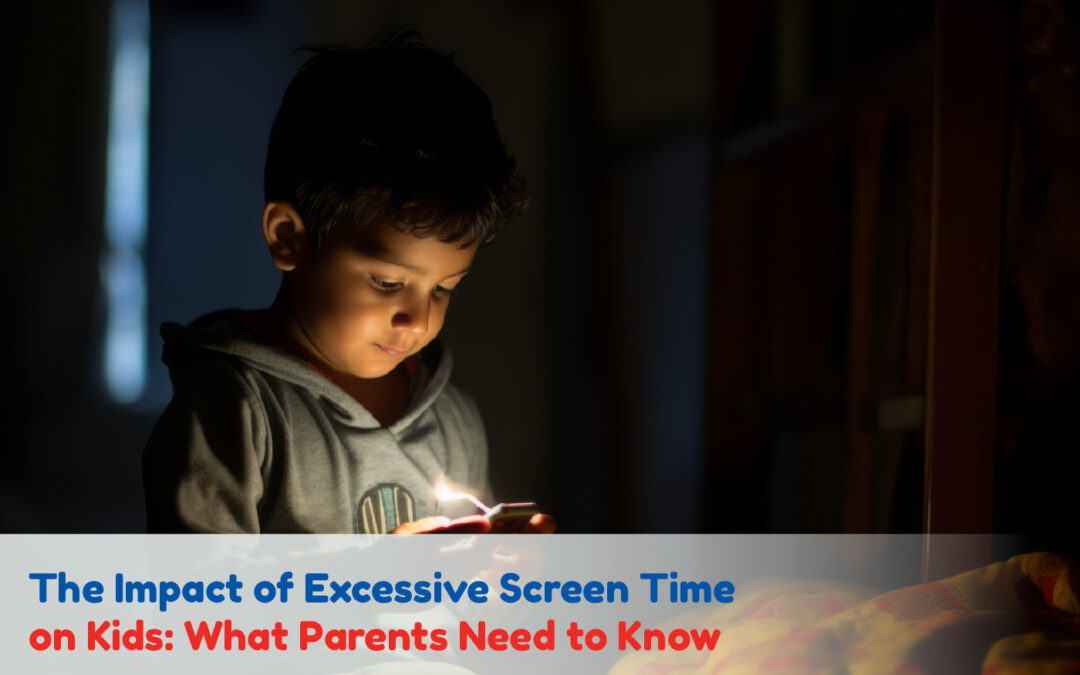In today’s digital age, kids spend more time in front of screens than ever before. Whether they’re watching TV, playing video games, or using tablets and smartphones, excessive screen time can have several adverse effects on young children. On the other hand, encouraging outdoor games and activities can benefit their overall health and development.
Here’s a closer look at how screen time impacts kids and why outdoor activities are essential.
Adverse Effects of Excessive Screen Time
1. Eye Strain and Vision Problems: Long hours of staring at screens can cause digital eye strain, which results in symptoms such as dry eyes, headaches, and blurred vision. It is alarming for children whose vision is still growing.
2. Sleep Disruption: Screens emit blue light, which can disrupt melatonin production, the hormone that regulates sleep. Children who use screens before bedtime struggle to fall asleep and may have poorer sleep quality.
3. Physical Health Issues: Excessive screen time is linked to a poor lifestyle, which can contribute to obesity and other health issues. Children who spend more time on screens are less likely to participate in physical activities necessary for their development.
4. Impact on Mental Health: Children who spend much time on their screens are more likely to experience anxiety and despair. The continual stimulus from screens can be overpowering, causing stress and mood swings.
5. Social and Behavioral Issues: Spending too much time on screens can reduce possibilities for face-to-face communication, which is essential for social development. Children may become increasingly isolated and struggle with social connections.
Encouraging Outdoor Play
- Set Screen Time Limits: Establish clear screen time guidelines to ensure kids have plenty of outside play opportunities. Encourage screen breaks and develop a balanced habit.
- Create a Fun Outdoor Environment: Create a safe and fun outdoor space with toys and equipment that promote active play. Provide balls, bikes, swings, and other outside toys to encourage movement and exploration.
- Be a Role Model: Engage in outdoor activities with your children to show them the value and enjoyment of being active. Set a good example by going on family walks, bike trips, or sports activities together.
- Organise Outdoor Events: To incorporate outdoor activities into your daily routine, plan family outings, picnics, or trips to the park. Create outdoor-themed events, such as treasure hunts or nature treks.
- Encourage Participation in Sports: Enrol your children in sports teams or outdoor clubs that match their interests. Encourage their participation in sports such as soccer, swimming, or fine arts, promoting physical activity and socialisation.
Learn how Kids Castle Pre-school encourages outdoor activities to love nature here.
The Benefits of Outdoor Play
- Physical Health Improvements: Outdoor activities inspire children to exercise, run, jump, and play, which benefits their physical fitness and general health. Regular physical activity can help reduce the risk of obesity and other health conditions.
- Better Vision: Spending time outside allows children to focus on distant things, which can help lower their chance of developing myopia. Natural light promotes healthy eye growth.
- Enhanced Sleep Patterns: Exposure to natural light during the day helps to regulate sleep cycles and improves sleep quality. Children who play outside are more likely to fall asleep quickly and sleep well.
- Boosted Mental Health: Outdoor play lowers stress and improves psychological relaxation. Endorphins, natural mood boosters, are released during physical exercises, making children happier and happier.
- Improved Social Skills: Playing outside with other children fosters social skills such as sharing, cooperation, and conflict resolution. Children learn how to interact, bargain, and form friendships.
- Stimulated Creativity and Imagination: Outdoor areas offer creative play and discovery opportunities. Children can create games, build forts, and engage in imaginative play, which promotes cognitive development and problem-solving abilities.
Conclusion:
The balance between screen time and outdoor activity is critical for children’s healthy development. Parents can help their children live healthier, happier lives by teaching them about the dangers of too much screen time and promoting the benefits of outdoor activity. Encouraging regular outdoor activities benefits not only physical and mental health but also social and cognitive growth.

